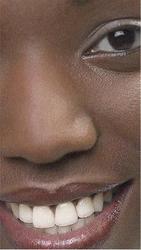
In response to readers' interest in my last article on dental implant (May 28), I have decided to write a follow-up article.
The cost of dental implants depends on many factors including the type of implantation, the dentist performing the procedure, where the procedure is performed, the material used or the need for bone or gum restoration.
The cost of single implants may range from US$1,000 to US$3,000 depending on the aforementioned factors. The cost of full-mouth reconstructive dental implants can range from US$24,000 to US$50,000.
Are you a candidate for dental implant?
Now that you know what an implant costs, it's time to determine if you are a candidate.
First, seek the advice of a dentist trained in implants. Your dentist will conduct a comprehensive oral health examination and patient history to evaluate candidacy. Ask about the extent of your dentist's training in implants. Since implantation is a type of oral surgery, it is important to ensure that your dentist has the experience and training required for this sensitive procedure.
Dental implantation, which is performed to replace missing teeth, can be done any time after adolescence or when bone growth is complete. Certain medical conditions such as active diabetes, cancer or periodontal disease, may require additional treatment before the implant procedure can be performed.
Also, to determine candidacy for a dental implant, your dentist must evaluate bone density and quantity. In some cases where bone loss has occurred due to periodontal disease, implants may not be advised. In certain cases, bone grafting can be derived from the bone; also, a synthetic bone or a bovine bone can be used to provide the right support for the implant but your dentist will need to determine if you qualify for these procedures.
Please note that a higher implant failure rate occurs in people who take immuno-suppressants and in smokers. You should also be aware that there are over 60 different implant companies. Therefore, if you have an implant procedure done by one dentist but go to a different dentist for a repair, the second dentist may have limited experience with or may not have access to the implants used by the previous dentist.
Dr Dennis Jones is a dentist in private practice; email: yourhealth@gleanerjm.com.

Dental implant alternatives: mini-dental implants
Narrower implants may be used for small teeth and incisors. Also, a narrower implant may best serve patients who require stabilisation of lower jaw dentures, pre-molar teeth, or a missing tooth that was located in a narrow area.
A small number of narrow implants are FDA- approved for the purpose of prosthesis stabilisation, including the mini-dental implant. Only certain dentists may perform this procedure.

